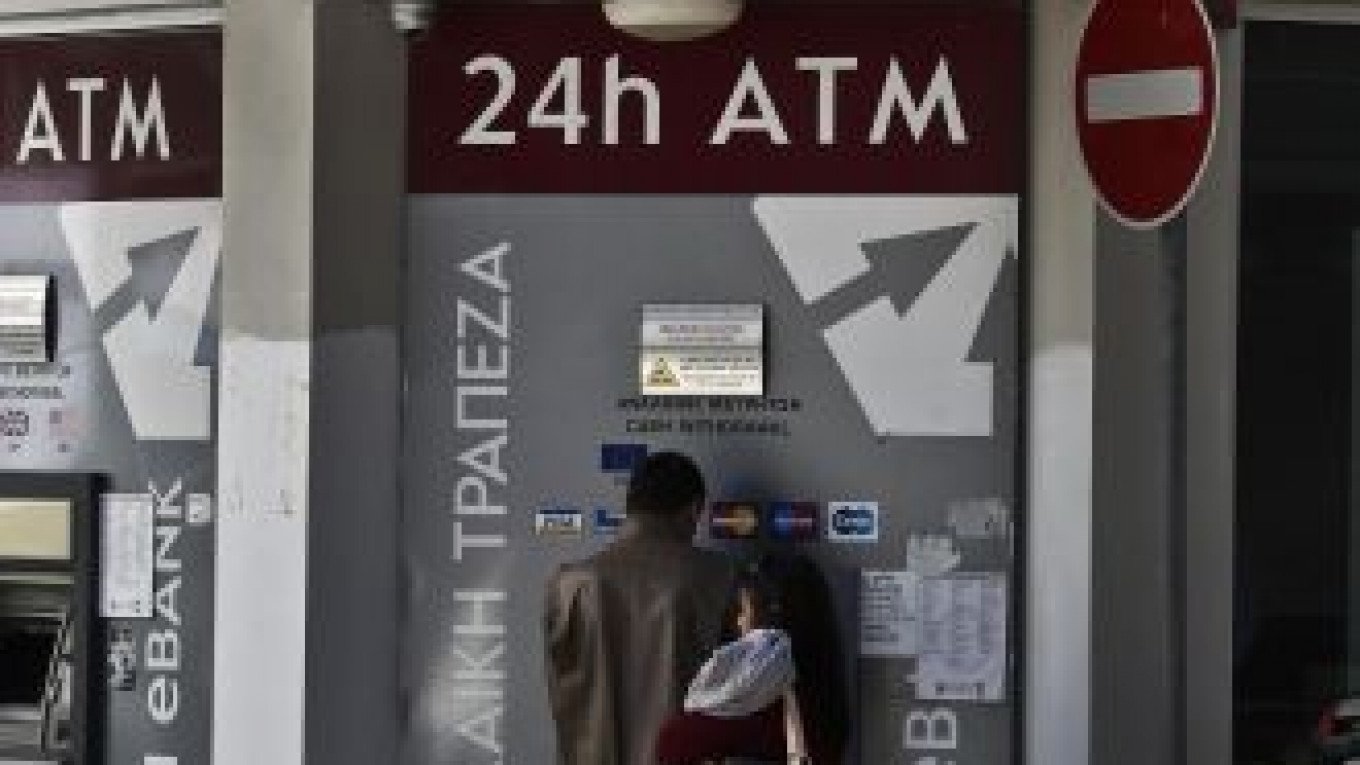Cyprus managed to avoid going over a financial cliff at the last moment on Monday by agreeing to seize a part of large deposits, including those belonging to Russian nationals, in its two main banks.
The plan envisages closing the state-controlled Popular Bank of Cyprus, also known as Laiki, and transferring deposits below 100,000 euros with Laiki to the Bank of Cyprus, the island's largest lender, to create a "good bank."
The Cypriot government will also freeze deposits exceeding 100,000 euros in both banks to pay Laiki's debts and recapitalize the Bank of Cyprus through a deposit/equity conversion, media reports said Monday.
It was not clear what percentage of the deposits would be confiscated. The Financial Times reported, citing a person involved in the talks, that the losses would be significantly higher than 20 percent. Cypriot television channels cited a Cypriot government representative as saying that about 30 percent would be seized, RIA Novosti reported. Vedomosti reported without citing any specific sources that the losses could amount to up to 40 percent.
Cyprus agreed to the move under pressure from finance ministers of 17 European countries who signed a preliminary accord early Monday to provide 10 billion euros ($13 billion) from the European Commission, the European Central Bank and the International Monetary Fund.
Cypriot authorities plan to collect 4.2 billion euros from large depositors.
Initially the island's authorities planned to withdraw 9.9 percent from all Cypriot bank deposits — a move that was protested by local residents, harshly criticized by Russia and rejected by the Cypriot parliament.
An EU spokesman said no across-the-board levy or tax would be imposed on deposits in Cypriot banks as was originally planned, Reuters reported.
Related articles:
A Message from The Moscow Times:
Dear readers,
We are facing unprecedented challenges. Russia's Prosecutor General's Office has designated The Moscow Times as an "undesirable" organization, criminalizing our work and putting our staff at risk of prosecution. This follows our earlier unjust labeling as a "foreign agent."
These actions are direct attempts to silence independent journalism in Russia. The authorities claim our work "discredits the decisions of the Russian leadership." We see things differently: we strive to provide accurate, unbiased reporting on Russia.
We, the journalists of The Moscow Times, refuse to be silenced. But to continue our work, we need your help.
Your support, no matter how small, makes a world of difference. If you can, please support us monthly starting from just $2. It's quick to set up, and every contribution makes a significant impact.
By supporting The Moscow Times, you're defending open, independent journalism in the face of repression. Thank you for standing with us.
Remind me later.


